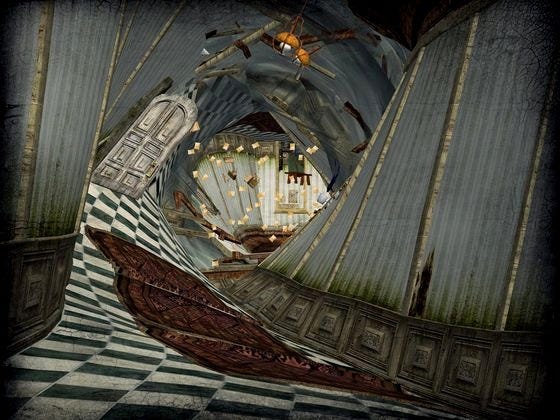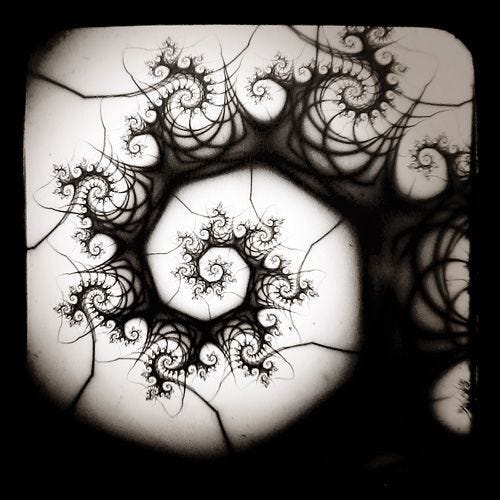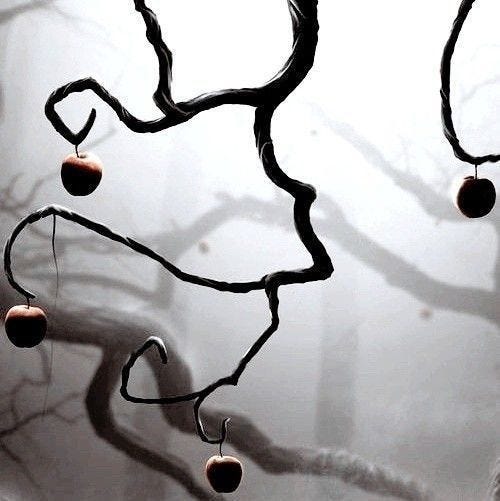Today’s will kind of differ from my usual post as you can likely tell from the title. I’ve had this urge to write something other than news recently, particularly as my life seems to be offering up plenty of good material, both when I’m awake and fully conscious of the variation in my life, and when I’m asleep, in that my dreams have gotten increasingly more interesting.
Intuitively, I’d think it both dangerous and inappropriate to share the details of my dreams with what has somehow become over 3,000 of you, in the way that I wouldn’t exactly post a manuscript of my latest journal entry, or tend to reserve the details of my aspirations for conversations with myself in the mirror. But nonetheless, the conversation around dreams, their significance or lack thereof, is an incredibly interesting one. For the philosophy babes reading this, this post is dedicated to you,
Enjoy this diversion from my usual domain to talk about all things dream related…
One of my first introductions to the philosophy of dreams came with reading an article entitled, “Dreams as Portals to Parallel Realities and Reflections of Self”, by David Leong and Oxana Zinych. Here, they answer the question a lot of us arrive at when analysing the dreamscape, which is essentially,
Do dreams help us process the world around us, or open the door to another world altogether?, or as they more thoroughly put it,
are “Dreams (...) vehicles for processing and integrating daily experiences, or [are they] potential experiences of a distinct ontological status where the dreamer may access realities that transcend the familiar confines of space and time?”.
First we have the functionalist perspective,
1. Dreams Make Sense of Our World (and of ourselves)...
Going about our day to day as we do, often busy with a myriad of tasks that distract us from the details of observation, we are often left missing bits by the time we arrive home. On your morning run, you might have seen a dragonfly fly past, decorated in an iridescence of blue and purple; a representation of beauty amidst the grey of a relatively boring day. And whilst you forget she exists, having continued on to eat your breakfast and find your way to work, she dances in the corner of your mind, waiting for a chance to re-emerge in a dream. Now you spot a giant dragonfly in this fictitious story, positioning yourself as Alice in your own wonderland, unbeknownst to the fact that your brain is simply trying to make sense of your day, just as it does each day.
On a more existential level, you might dream of the world on fire as political unrest appears unyielding, and as your safety is continuously threatened.
Either way, our dreams allow us to bridge the gap between our waking reality and the unconscious mind, helping us sort through and understand the overwhelming amount of information we encounter every day, whether presented metaphorically, or by simply replaying events that actually did happen.
But after looking outwards at the world around us,
What about the capacity dreams have to tell us more about ourselves?
Contrary to the typical image of there being a front and back of our minds, for me, there is this upper layer of our minds, on the surface, on which all the things we come to easily accept about ourselves sits, like our tendency for being late, or dirty habits like biting our nails, and then there is a lower layer, full of the untapped or forgotten. It’s kind of like those iceberg memes, “How well do you know [insert artist here]?”, where the tip of the iceberg contains Radiohead songs we all know and love, and as the rest of the iceberg is revealed below the surface, it hosts countless, lesser known songs.
Even if he isn’t always right, Freud lends an astute analysis to the interpretation of dreams, suggesting that dreams are the manifestations of repressed thoughts and desires, in that they could provide valuable insight into an individual’s unconscious desires and conflicts so, if even if we’d much rather sit on top of the iceberg because it’s much more comfortable and warmer there, the subconscious mind remains active beneath the surface.
Our dreams can help us realise deeper aspirations.
In this dream, you might the top job in a field you weren’t even aware would be perfect for you, because our brains collect data on us all, ready for the reveal, like an aptitude test. Since any one of our thoughts can change our behaviour going forward, dreams like this can carve out a space for you in a new medium by way of simply dreaming about it, even if we don’t keep a dream journal. You should, though, keep a dream journal. Not only are they incredibly fun to read back, but they can offer you clearer insight that you might get should you sit there ruminating for hours.
On the other hand though, dreams that appear more like horror movies than whimsical adventures of endless wonder are harder to reckon with, especially if we accept they can reveal truths about us.
Still, I find it is nowhere near as simple as something like “I dreamt about murdering my friend, therefore I clearly want to murder my friend”. Those of us who are no stranger to violent intrusive thoughts already know this, but for those of you who aren’t, I’ll explain this a little clearer.
Terrifying dreams that leave us questioning our morality can actually signify the opposite, that what we’re dreaming about represents that which we’re diametrically opposed to, as well as metaphorically depicting the varying dynamics present in our interpersonal relationships.
As long as we’re still in the fundamentalist view, it’s also worth asking,
Can our dreams can be manipulated, or infiltrated by societal norms that are repeatedly fed to us over time?
For example, The average person might at some point dream of a billion pounds (or dollars), not because a lot of us want or think we need a $1 billion, but because you watched video after video throughout your life telling you that if you just acquire one, two or three side hustles, that you too can become wealthy, even though the money gained from this has become just enough to live comfortably at this point.
Others might dream of the perfect nuclear family, filled with faces you scarcely recognise, because of the way in which conversations around it’s benefits can be to you in the future, where over time, you’ve come to accept that this will represent your future, without giving it much thought.
In this way, there’s the possibility that our dreams aren’t even ours, and like our conscious minds, are held captive by well-thought out plans to captivate our attention at all times.
But then there are those (like myself) who believe that regardless of how these thoughts find their way into the dreamscape, that the moment they manifest into entire episodes with ourselves as main characters, that in this universe, you actually did experience all of this.
2. Dreams open up another world entirely.
The most convincing argument for this perspective, to me, comes from the growing popularity in beliefs around metaphysical solipsism, even if the idea itself is terrifying. Metaphysical solipsists maintain that the self is the only existing reality and that all other realities, including the external world and other persons, are representations of that self, having no independent existence. Essentially, our minds create the world around us, or at the very least, heavily distort reality according to our own sense of idealism. Unsure of whether or not I believe that we create everything around us out of nothing, I can say I agree that life is perception, and none of us are entirely reliable observers, because all of us are capable of misconception, forgetfulness, bias as well as creation. Based on this line of thought, if we’re to accept it, then dreams aren’t any more immaterial than our real lives.
We tend to consider dreams as being vaporous and imaginary rather than existing as an alternative state of being or reality. But many of us can live entire lives in our dreams, with people reporting feeling the effects of events that occur in them, as well as conversing in them, interacting with other players in them, and for the more advanced, playing with the dream’s fabric at will.
If we were to spend enough time in our dreamscapes, it’s arguable we don’t sleep exactly, but venture off to live another life entirely. In Inception, one of the most well-known adaptations of dream philosophy, we see how dreams can theoretically become very real. Not only this, but we see how the stories present within the dreamscape could be preferential to some than real life:
There’s a moment where some of the homeless characters in the film live in a constant induced dream-like state, where they retreat from their waking lives to avoid the trauma, pain, or burdens of their circumstances. The dream world becomes their refuge, and in a sense, it becomes their "new real life." Here, the blurred line between dream and reality challenges the perception of what constitutes real life, showing that for these individuals, the dreamscape offers a greater sense of control, comfort, or peace than their actual existence.
The same conversation can be had around coma patients, and whilst most claim they don’t dream at all, others report dreaming occasionally, or living in never ending nightmares, which is arguably the closest lived experience of hell itself.
As further evidence that the dream realm is not just an ephemeral, disconnected space but a legitimate parallel existence that holds significance and coherence, I present to you, what’s known as the ‘Lucid Dream’.
Lucid dreams, where the dreamer is aware that they are dreaming and can, to some extent, control the dream's narrative and environment constitutes a level of awareness that suggests that the dream world is not just a passive experience but one where the dreamer has an active role. The ability to manipulate the dream, interact with it, and make conscious choices challenges the notion that dreams are purely random or immaterial. In this way, the dream world operates with its own rules, perceptions, and experiences, making it feel as "real" as the waking world.
Similarly, recurring dreams also dispel notions of the spontaneous manifestation of dreams, where settings that repeat over time suggest that there is a consistency in the dream world that can shape the dreamer's perception of it. These dreams often carry strong emotional weight or personal significance, and the fact that they repeat can imply that the dream world has its own rhythm, structure, and purpose. If these dreams follow patterns or narratives that persist over time, then the dreamscape becomes more tangible. For me, recurring dreams possess a certain familiarity, like revisiting a place or an event that I’ve experienced before, like a playground of sorts, not with necessarily childlike associations, but as one that evolves with my own maturity, catering to my needs.
In the dreamscape, where the limitations of our real world cease to exist, the potential for a spiritual realm can also be fulfilled. Those prophets that claim to have seen the future in a dream, having been gifted the truth by a deity or through their own realisation take advantage of the ability to manipulate time in the dreamscape, just like artists who discover their latest project by taking advantage of endless possibilities to control space here, only to find this vision is flatter in real life somehow.
But between functionalism and what is in my opinion a far more exciting perspective, where does the truth lie?
Is the dreamscape real or imagined?
My guess is the truth of it all scarcely matters, and really, the importance lies in a more important question,
What do you believe?
Asisa











I love how you brought up inception!!🤭comas was an intresting perspective.